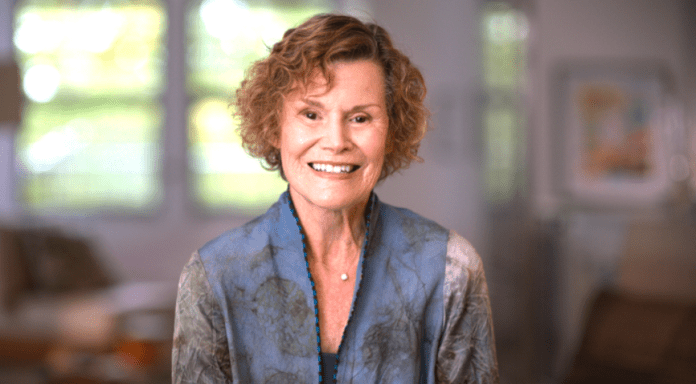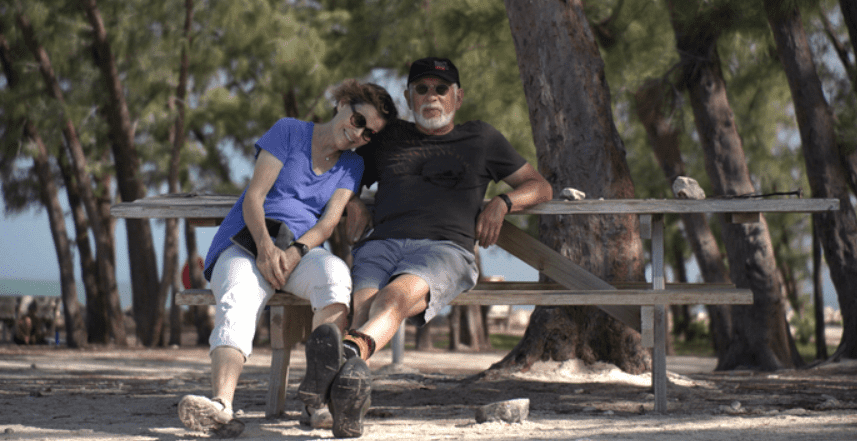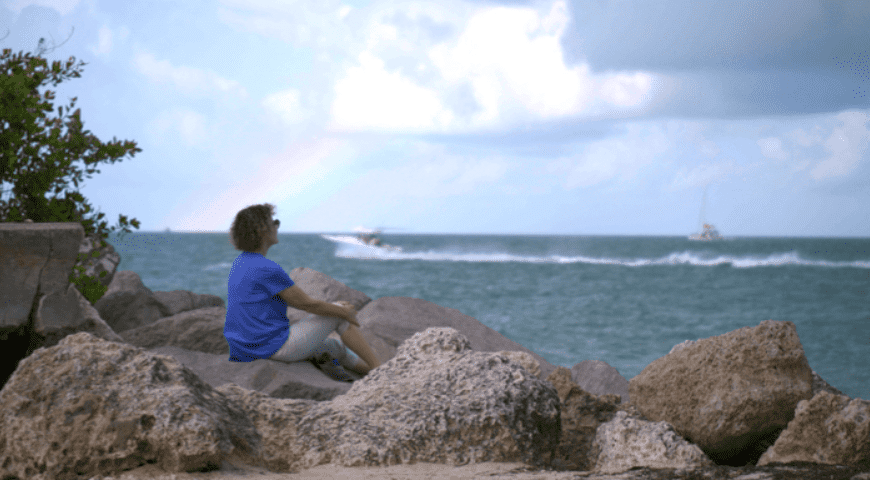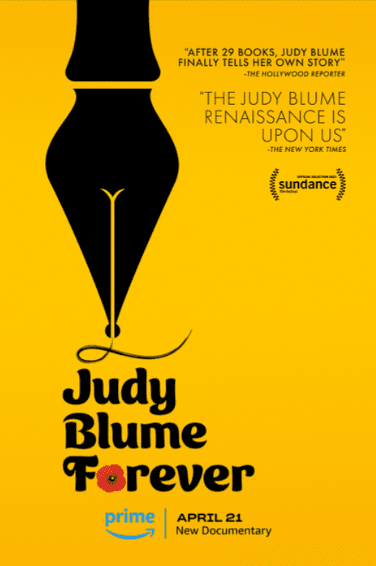Few names will spark memories of your favorite childhood books like that of Judy Blume. Her books ranged from mischievous kids to tales of bullies and the important topics of puberty and growing up. It’s hard to find someone who hasn’t grown up reading at least some of her work in the past fifty years, but for many kids, besides her seemingly omnipotent betrayal of what it’s like being a kid and the struggles they’re going through – her name was just another author on a page.
However, throughout her decades of writing kids’ books and later novels, Blume has found herself on the banned book list countless times. Even with the constant fighting against her writing, Blume has decades of devoted readers who have now passed her books on to the next generation. And throughout her time as an author, not only took the time to write back to her young readers who wrote her letters throughout the years, but forged decades-long friendships with the children who wrote to her.
Judy’s story of becoming a world-renowned author isn’t one that you would expect and her journey from a housewife to a banned author and writer of adult content, is now a documentary on Prime Video. The extremely nostalgic and powerful documentary was directed by Davina Pardo & Leah Wolchok and is streaming now. We were able to sit down with Leah Wolchok to find out more about the timely documentary and what it means to Judy Blume fans of all ages.
What is the importance of making this documentary now?
“When we started the film we never could have predicted the extreme ways that book banning has come rushing back into public discourse. We’re infuriated with the current state of censorship for children’s books.
What’s different today about book banning – it’s politicized and it’s legislated. So before it was small groups of parents challenging communities at their schools and their public libraries. It was before social media, and before they could find each other and these huge groups of conservative moms are getting together and trying to ban books across the country. But now we also have state legislators and governors trying to get involved in telling our kids what they can and cannot read. Pulling books off the shelves.
The “Don’t Say Gay” law has now been clarified in even worse ways in Florida. The “Don’t say period” law has been purposed in Florida. The need for all kids to see themselves in a story reflected back to them in a story is stronger than ever. And the books that are most often being challenged are books by black and brown authors and books by queer and trans authors. And they’re being banned in places where they are needed the most because kids would have no other way to be exposed to them. There might not be another Trans kid in their class, there might not be another person of color in their classroom. And those books would be so helpful to affirm their worldview and for other kids to get a window into a perspective they wouldn’t have if it wasn’t introduced to them through a book.”
What was it like working with Judy Blume? Did you learn anything surprising?
“One of the most touching parts of Judy’s story is the depth of the connection to her readers that you can see through the letters kids sent to her and the ones she sent back. All authors who write for kids get fan mail from kids, what was different were the letters Judy received were from kids pouring their hearts out to her. About everything. They felt like she was the only adult that could understand them. No one else in their life could they talk about these really private things with, but Judy Blume would understand. So they reached out to her about everything from problems with their friends and family, and teachers, to really serious issues at home. Eating disorders, depression, eating disorders, suicidal thoughts, sexual abuse, incest. And she wrote back.
When she received a letter from a child that was really in pain and needed support, she wrote back. And some of them she corresponded with for decades. Getting to know two of the women that wrote to Judy from the time that they were young girls through today – was one of the most unexpected and extraordinary parts of making this film.”
Why was it important to include Are You There God? It’s Me Margaret and Forever in this film specifically?
“We always wanted the film to be a coming-of-age story of Judy as a writer, but also of the characters in Judy’s books and of her readers. So we wanted to choose books that reflected different parts of human life.
We wanted a book that represented a time in childhood. A book that represented being on the cusp of adolescence – that’s Are You There God? It’s Me, Margaret. Which is Judy’s sweet spot. A book about adolescents, Deenie and Forever are both in that category. And then books that had robust adult characters that Judy wrote when she was more developed as a writer and had more adult experience.
It’s crazy that in Florida there is a bill before the state legislature that kids in elementary school cannot learn about their bodies. They cannot talk about their bodies, and cannot learn about health education, or sex education. It’s outrageous to think that Judy wrote Are You There God? It’s Me, Margaret, in 1967, more than 50 years ago when it was seen as controversial. You can almost see that it was controversial 50 years ago, but to think that kids are not going to be able to talk about their own bodies is. Something that is very natural and normal and happens to 50% of the population. Having your period. It’s outrageous.
Are You There God? It’s Me Margaret changed her life forever. That was the book that brought her her first readers, she really accessed her truer self and really found her voice in that book.
Forever, the main character Catherine goes to Planned Parenthood. That was groundbreaking in 1975 when the book came out. Roe was 1973, so just 2 years after the Supreme Court validated Roe v. Wade and the right to abortion. And here we are, supposed to be celebrating the 50th anniversary of Roe v. Wade and we are all devastated that women’s bodily autonomy is being challenged in such a dramatic and outrageous way. To think that a book about two teenagers who decide to have safe, loving sex. They’re 18 years old, and they’re having a safe, loving relationship, exploring their bodies in that way. It’s controversial again.
Those two books representing a girl going through puberty and two teenagers having responsible sex were really important to include.”
You talk to two fans who wrote to Judy, what was the process of finding those two fans to highlight and to bring them into this documentary?
“So there are thousands of letters in the archives. Judy’s letters are archived at the Beinecke Rare Book Library at Yale. And there are hundreds of boxes of letters. They are organized by theme, but some are organized by the letter writer.
Because of Covid, we weren’t able to get into the library once we started production. But we were able to get the letters in other ways working with the archivist at Yale and with students who were there. But those letters are under strict protection. You cannot reach out to any of the kids that wrote to Judy. Judy and George have made sure that no researcher who goes into the Yale library can reach out to those kids.
We had heard that she had kept in touch with some of the kids for decades. So we asked Judy if she could introduce us to any of the letter writers she kept in touch with, who first reached out when they were kids. She introduced us to Lori and Karen. I think there are several others. She reached out to them and told them about the documentary and asked if they’d be willing to share their story with these two filmmakers.
We talked to them over Zoom before bringing them in to interview them. We wanted to try and build a relationship with them. They sent those letters to Judy thinking that no one else in the world would see those letters. And that they would never have to see those letters again either. That’s part of the beauty of sending someone a letter. It’s not like an email that you have saved in your sent box. It’s this beautiful vulnerable moment, sharing with pen on paper your deepest feelings and sending them off to this author. They were seeing their letters again for the first time, in almost 50 years, 40 years, and 30 years. It’s this kind of wild thing being transported back to this kid that reached out to Judy. For Karen would have been through something so traumatic, we spent a lot of time before and after to make sure she was well supported and going through this process of uncovering the trauma she had been through and sharing her story publically for the first time.”
What have you learned about what Judy meant to the readers?
“Judy Blume represents everyone’s childhood. She says that when fans come into her store, women who read her as young girls or adolescent girls, immediately start to weep. She has a box of tissues by the checkout because she knows the tears are just going to start flowing when they meet her.
I think she felt to so many young readers that she understood exactly what they were thinking. It’s like Lori says in her letter “How do you know all of our little secrets” when she was 9.
But it’s that feeling of here’s an adult who knows exactly what I’m thinking and feeling. And here are characters going through the same things I’ve gone through. And they’re not afraid to express it. It was so validating for so many kids who didn’t feel like any adult in their life would listen or understand what they were going through.”
How did you decide which authors you wanted to include in the documentary as well?
“From the beginning, we always knew we wanted to talk to authors who were writing for young people today, whose books were being challenged. So even when we started the project in 2020, book banning hadn’t reached the frenzy it has now. We started tracking the American Library Associations Banned Book List, we knew at the top of the list were books that were about gender, and sexuality, books by queer and trans authors, and books by brown and black authors. We always wanted to talk to Jason Reynolds, Alex Gino, and Jacklyn Woods and we were so honored they were willing to share their perspective in the film. We also wanted to talk to women who were writers and actors creating female protagonists who were groundbreaking in their own way. An honest portrayal of girls and women’s sexuality and validation of women’s sexual pleasure and desire. Pushing it a bit further.
We really wanted to include the voices of contemporary middle schoolers. We knew we had to include their perspectives in the film. So we found a 6th-grade English teacher who started a Judy Blume curriculum in Long Island. And through this teacher, we were able to meet some of the 6th graders who are reading her books and responding so well to them. They were reminding us that not everything in the book holds up, but the feelings hold up.”
Judy Blume Forever is now streaming on Prime Video as part of your Amazon Prime subscription. The documentary is a labor of love and one that will not only bring back a touch of nostalgia but will have you adding more books to your to be read pile.
Overall Rating:
About Judy Blume Forever:
Generations of readers have found themselves in a Judy Blume book. Her name alone launches a flood of memories for anyone who’s gripped one of her many paperbacks. For decades, Blume’s radical honesty has comforted and captivated readers – and landed her at the center of controversy for her frankness about puberty and sex. Now the beloved American author candidly shares her own coming-of-age story. Emmy-winning filmmakers Davina Pardo and Leah Wolchok trace Blume’s journey from fearful, imaginative child to storytelling pioneer who elevated the physical and emotional lives of kids and teens, to banned writer who continues to fight back against censorship today. Playful and poignant animations celebrate the magic and awkwardness of being young, while intimate conversations with acclaimed authors and artists reveal Blume’s profound impact on readers. Long-standing fans share open-hearted letters they wrote to Blume over decades. With humor, sensitivity, and a healthy dose of adolescent cringe, Judy Blume Forever tells the story of the woman whose trail-blazing books changed the way millions of readers understand themselves, their sexuality, and what it means to grow up.








